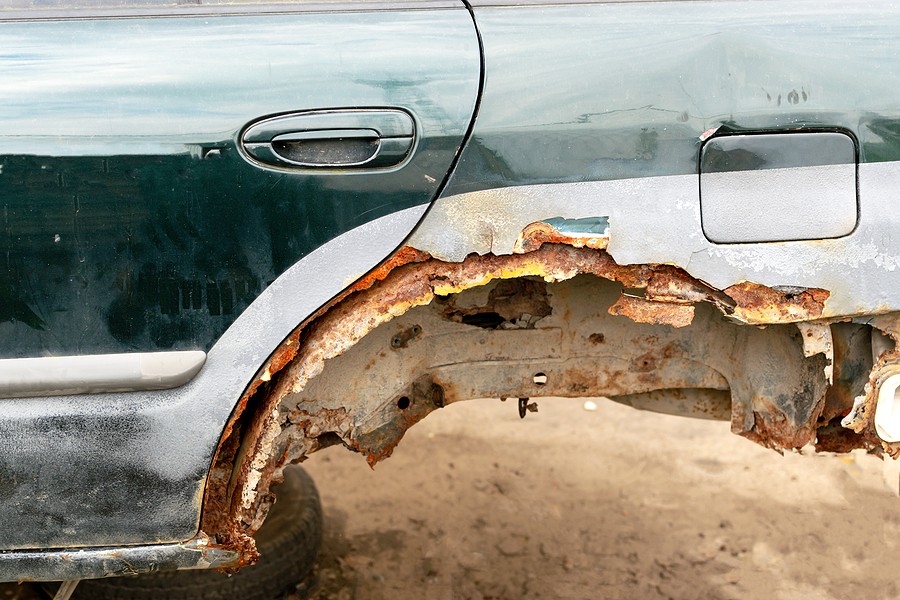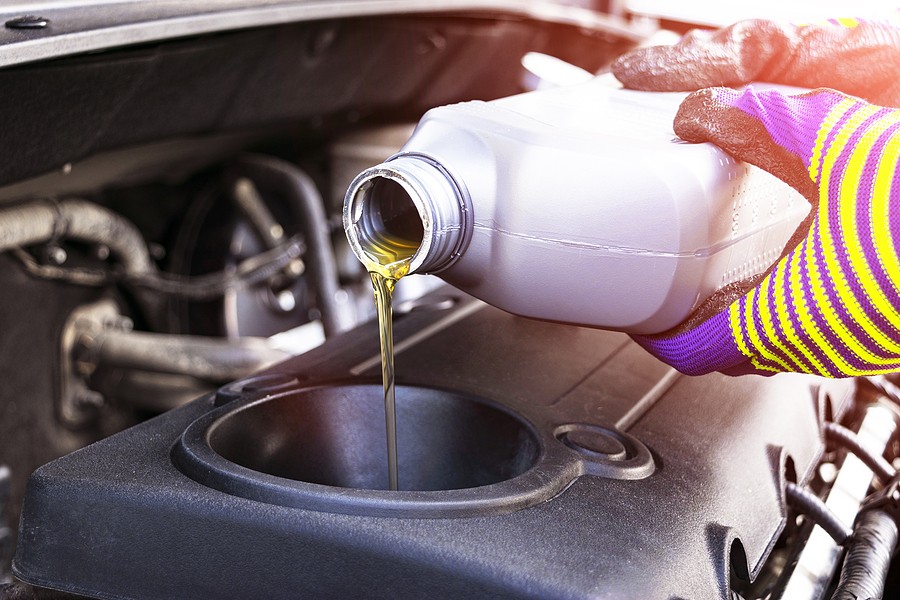This article serves as the engine oil 101. It highlights the main role of the motor oil in your engine, the different types of motor oil, oil changes frequencies, and other important details!
Your vehicle's engine oil is a critical fluid that you must maintain all the time. Therefore, understanding one or two things about your engine oil are very important and helps you prevent undesirable situations dealing with engine oil problems.
This article provides you with a detailed engine oil 101. It highlights all the details about the engine lubrication system, the different types of motor oil, the consequences when delaying oil changes, and others. Read on for more details!

Why does your vehicle need engine oil?
One of the most important things that we need to highlight in engine oil 101 is the importance of engine oil. The engine oil is one of the most critical fluids you must maintain in the vehicle because it's responsible for lubricating the moving components and preventing friction from overheating the engine.
The engine oil also takes any excess heat from the hot components. In addition, it cools it down, so these components operate at the optimum temperature and achieve good engine performance.
The engine oil system consists of important elements that you need to only ask yourself with, including:
1. The oil sump
The oil sump is where the engine oil sets all the time. Sometimes you'll hear that it's called the oil reservoir. It is a container to collect all the engine oil for usage.
2. The oil galleries
The oil galleries are like tubes transporting oil around the lubrication system.
3. The oil pump
As the name suggests, the oil pump is responsible for pumping oil from the oil sump to the surrounding components around the engine. The pump works with a very strong pressure that forces the oil to get inside all far and inaccessible components around the engine to ensure lubricating them.
4. The oil filter
The oil filter is one of the most critical filters in your vehicle that prevents any contaminants or debris from making their way to the different components around the engine. If the oil filter is clogged, oil won't get to the engine with the right quantities, and that's when you start dealing with engine overheating problems.
What does the engine oil do?
While we have a good understanding of the engine oil role in lubricating the internal components, let's take a closer look at the exact functions that your engine oil typically does:

1. Lubricating the components
The most important role of your engine oil is lubricating the internal components. These components are metal, and they interact with each other continuously to generate a lot of friction. By providing the right internal rotation, the components will work properly, and you don't deal with friction that damages these components prematurely.
2. Removing contaminants
Not only does engine oil lubricate internal components, but also it removes most contaminants. However, as the engine oil runs, it collects a lot of assets, dust, degrees, and other contaminants that might impact the engine's performance and cause it to get damaged prematurely.
3. Maintaining the engine temperature
When the engine components are fully lubricated all the time, you don't have to worry about engine overheating problems, which is one of the most critical problems that damage the engine in no time.
Your engine must operate within a certain range of temperature. If it exceeds this range, the engine will not generate the right energy, and it might get self-destructed if the temperature increases beyond a certain maximum threshold.
4. Preventing corrosion
By maintaining a fully lubricated engine, you don't have to worry about rust and corrosion typically building up inside the engine. Modern oil additives help eliminate rust and clean it regularly, so you don't have to deal with these problems.

5. Enhancing the engine's performance
As we indicated before, if the engine doesn't work within the right temperature range, you'll see a significant reduction in the overall engine’s performance. Thus, another important role of engine oil is to enhance engine performance and ensure that it provides you with the expected energy.
Why do we need an oil change?
Open time reviews, the motor oil breaks down, and it loses the characteristics that help it maintain the engine temperature and perform the right roles. That's why it is critical for you as a driver while looking at the Engine oil 101 to understand why do you need to perform an oil change at some point in time.
Depending on your motor oil type, you'll need to change it in a certain time frame. For example, if you're using low-quality motor oil, you'll have to change it sometimes once every 5000 miles. However, there is a very common myth that sometimes you might need to change the motor oil once every 3000 miles. However, we highly encourage you to follow what's recommended in your vehicle’s owner’s manual because that's the most accurate information. In addition, the manual will tell you how often you should replace the engine oil, depending on what type of oil you choose.
Note that some high-quality motor oils might not need replacement until you hit 10,000 if not 15,000 miles, which is a very good option for those who don't like to stay in line to change their motor oil. However, not every motor oil is suitable for this type of high-quality oil or what's referred to as synthetic oil.
Thus, your vehicle owner's manual is the best location to start with for determining what type of oil you should choose.
What happens if I ignore an oil change?
It might sound like motor oil is not a big deal, and one might ask himself, what happens if I ignore it and oil change? Therefore, it's a must to understand the negative consequences that could happen to your vehicle once you ignore oil change for extended times, which we're going to cover in the next section of the engine oil 101 courses.
Ignoring engine oil is a big deal. It does not only cause reductions in your vehicle's overall performance, but also it might get to a point where your engine gets self-destructed in no time.
Therefore, if you compare the pros and cons of ignoring your engine oil, you'll not see that you must not ignore an oil change, and the more you delay it, the higher the chances of dealing with significant engine problems.
Once you ignore an oil change, the oil itself becomes very dirty, and it will lose the characteristics to cool down the engine. Also, the engine will build a lot of carbon and other contaminants that reduce the engine's performance. Finally, the moving parts will grind against each other and cause some friction and premature wear-outs that you don't want to deal with.
What are the different types of motor oil?
As we touched briefly, mutual oils are not the same, and some types are of higher quality than others. Therefore, within this engine oil 101 course, we would like to give you a general idea about different types of motor oil that you will encounter in the car market:

1. Conventional oil
Conventional oil is the standard type of oil that you will see in almost every vehicle. It is the most affordable, and it provides your vehicle with the basic characteristics that it will need. However, when choosing conventional oil, you'll have to change the oil more frequently than other types of oils, which means that it might be a pain for those who don't like to stay in line long times and visit the auto repair shop multiple times.
Keep in mind that you cannot easily switch to a higher quality oil without consulting your mechanic because your vehicle type might not be compatible with other types of oils.
2. Fully synthetic oil
Think about the following synthetic oil as the top and highest quality type of oil that you'll see in the vehicles market. It provides you with a car with all possible good characteristics to help enhance the vehicle's performance and clean up any dirt or contaminants that your engine might be suffering from.
However, fully synthetic oil is much more expensive than conventional oil, and that's why not every driver prefers to choose it because it might be affordable. On the other hand, fully synthetic oil does not require frequent changes, and you might get up with one year without needing an oil change, if not more.
3. Synthetic blend oil
As you might notice, conventional oil is affordable, but it requires more oil change frequencies. On the other hand, fully synthetic oil is not affordable, but it provides good oil changes frequencies. Therefore, automotive experts designed a new type of oil that combines both synthetic and conventional oil.
This synthetic blend oil provides your vehicle with good characteristics and does not require much oil change frequencies as conventional oil. However, it is still more expensive than conventional oil, but it's not as expensive as synthetic oil.
How often should I change my engine oil?
Since ignoring the oil change is a big deal, you must understand how often you change your motor oil as part of the engine oil 101 courses. While you can always get to your vehicles owner’s manual to get accurate answers, let's take a closer look at some of the common oil changes frequencies by motor oil type and vehicle type:
| Vehicle | Oil change frequency |
| Honda CR-V | 7,500 miles or every 3 months |
| Toyota Rav4 | 5,000 miles or every 6 months |
| Honda Civic | 7,500 miles or every 3 months |
| Toyota Camry | 5,000 miles or every 6 months |
| Chevrolet Silverado | 7,500 miles or every 3 months |
| Ford F150 | 10,000 miles or every 12 months |
As you noticed, oil change frequency sometimes is referred to by several miles or by duration. Therefore, you must check whichever comes first to determine your next oil change. For example, Honda Civic needs an oil change once every 7500 miles, but if your vehicle didn't put these miles over the last time, you'd need to change it once you hit the three months.
Keep in mind that these oil changes frequencies might differ significantly depending on the type of oil you're using. For example, if you used conventional oil for your vehicle, the oil change frequencies will be longer than synthetic or synthetic blend oil.
What happens if I add oil instead of oil changing the oil?
An oil change is extremely important, and by adding oil, you are not solving the problem. Instead, the entire oil quantity should be flushed out, and a whole new oil should be added to your engine, so it works right.
If you just added oil, you're keeping the contaminants, and all the corrosion or other things collected during the oil travel around the engine will stay there. Therefore, you won't see any improvement in your vehicle's performance.
Furthermore, when the motor oil is continuously dirty, you most likely be dealing with a clogged oil filter. Therefore, you cannot simply add oil without changing the motor oil because when the motor oil filter is clogged, the oil does not get to the engine, and your problems will stay there without any improvement.
In fact, by just adding motor oil to the engine, you might add more oil than needed, and that's why you'll cause additional pressure and other issues that might result in negative consequences instead of resolving the issue. Therefore, it's important that you follow the maintenance recommendations and never decide on alternatives on your own without consulting your mechanic.

Engine oil 101: Final thoughts
Your engine oil is an extremely important fluid that you must maintain all the time. However, maintaining oil changes and keeping the oil level at the right point is not the only thing you need to understand about your motor oil. Thus, this article provided you with a detailed engine oil 101 article highlighting all the important information you need to understand your motor oil.
Once you fully understand your motor oil, you'll have a good idea about how important it is to change the motor oil on time and what could go wrong whenever the oil change drops below a certain threshold.
While it's critical to understand everything about the motor oil, sometimes you might be dealing with significant issues related to how the engine performs or the transmission performance. If that's the case, you might want to focus on resolving these major issues first before checking on motor oil.
In some instances, your repair costs might be beyond your capabilities, or your vehicle might be beyond repairs. If that's what you're dealing with, you might want to consider selling your vehicle and buying a better one that doesn't have any major problem.
While it's a great idea to take care of any minor scratches around your vehicle's exterior, sometimes it might not be worth it. In other words, if your car has other major problems that are worth your attention than focusing on small scratches, then you'll have to think about whether it's worth fixing your car or selling it Instead.
Cash Cars Buyer is one of the top-rated car removal companies in the nation that guarantees to pay you the top dollars and provide you with free towing despite your living location around the united states.
Our process is very straightforward and doesn't take more than a couple of days to get your car removed safely and for the most money.
All it takes you is to:
- Describe your car’s type and condition
- Receive our instant free quote
- Accept the quote
- Get your car removed and receive your cash payment on the spot!
To learn more about our process and our teen, you can reach out to us by calling us at (773) 791-4363 or visiting our home page click on the free instant online offer.



